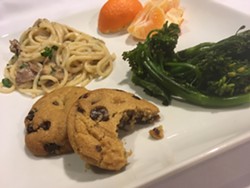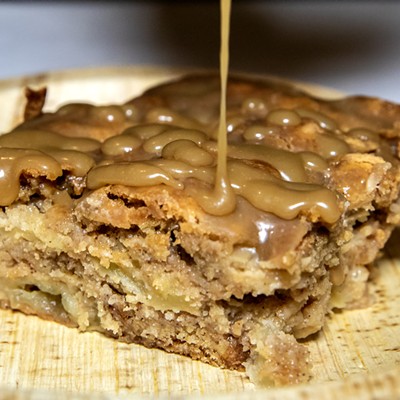A diet where you can eat your favorite chocolate chip cookies and still lose weight might not be fantasy after all.
This can be a reality for people who practice intuitive eating. Intuitive eating is not a diet -- in fact, it rejects the dieting mindset. Instead, it’s an approach to eating that cultivates a healthy relationship with food, mind and body.
Before you write it all off as “too unhealthy,” “too zen” or “too good to be true,” it might help to know that it’s supported by the Registered Dietitian Nutritionists at Tri-State Memorial Hospital in Clarkston. They teach “Intuitive Eating,” a book and program that uses specific principles to promote mindful eating, said Jennifer Raykovich, a Registered Dietitian Nutritionist at the hospital.
Raykovich specializes in outpatient nutrition services and community education and has been teaching an 11-week intuitive eating program on an ongoing basis for the past two years. A new group class begins Monday.
Everyone is born an intuitive eater, Raykovich explained. But over time, other messages override that instinct -- ranging from “finish everything on your plate” to popular ideas about health and diet. By rejecting rigid rules and standards, the Intuitive Eating program teaches people to enjoy their food, listen to their body’s needs and nourish their body in ways that feel good physically and psychologically.
Unlike diets, mindful eating gives people options. It invites people to ask themselves what will be most satisfying to eat in that moment, Raykovich said. Sometimes that will be a plate of salmon and broccoli and other times it’ll be a peanut butter and jelly sandwich on white bread. Neither are considered “right” or “wrong,” “healthy” or “unhealthy.”
“It’s really about trusting what your body is saying,” Raykovich said.
And no, it doesn’t lead to people eating a whole bag of chips in one sitting. People who practice intuitive eating make healthier choices overall, Raykovich said. She explained that someone who is considering how certain foods will make them feel generally won’t eat a bag of potato chips -- they’re often happy with a few chips because they savor their food and stop eating when their craving is satisfied.
“That’s the mind-body connection,” Raykovich said. “It’s about being mindful of how the body is reacting to the food that you eat.”
Mindful eating is not about weight loss -- but those who practice it tend to lose weight at a slow, healthy rate over time. They also tend to keep it off long term, Raykovich said.
By contrast, dieting is a quick fix that typically doesn’t last. In fact, some studies suggest it may even contribute to higher body mass index, Raykovich said.
“When I ask people if they weigh more now than when they started dieting, in most all cases they say yes,” Raykovich said.
Restricting food groups, amounts to eat, or times at which to eat can be hard on our bodies, Raykovich said.
Those who practice mindful eating don’t just lose weight -- they also lose guilt. Diets feed guilt because they aren’t sustainable, Raykovich said. When a person inevitably gains the weight back, they often feel ashamed.
“People feel like they’ve failed their diets when really, it’s diets that fail people,” Raykovich said.
10 Principles of Intuitive Eating
- Reject the diet mentality. Refuse to engage in dieting mindsets or techniques.
- Honor your hunger. Understand what physical hunger is and learn to trust what your body is telling you.
- Make peace with food. Don’t limit options -- instead, ask, “What sounds good to me?”
- Challenge the food police. Reject rules about eating, for example, “it’s bad to eat after 6 p.m.” or “bread is bad for me.”
- Respect your fullness. Pay attention to the sensation of fullness and stop eating when you’re no longer physically hungry.
- Discover the satisfaction factor. Take time to enjoy the tastes, textures and aromas of your food in an inviting environment free of distractions.
- Cope with emotions without using food. Learn other ways of dealing with procrastination, boredom, loneliness and other negative emotions.
- Respect your body. The body you have is good and deserves to be nourished, moved, dressed and touched in ways that honor it.
- Exercise — feel the difference. Be in tune with your body’s need for movement and find activities you enjoy.
- Honor your health with gentle nutrition. Nourish your body with food that gives energy and makes you feel good physically and psychologically.
IF YOU GO
WHAT: Tri-State Intuitive Eating Program
WHEN: 5:30 to 6:30 p.m. for 11 weeks, beginning Monday
WHERE: Tri-State Memorial Hospital Conference Room, 1221 Highland Ave., Clarkston
COST: $149; register by calling (509) 758-5511 ext. 5170 or email JRaykovich@tsmh.org






















